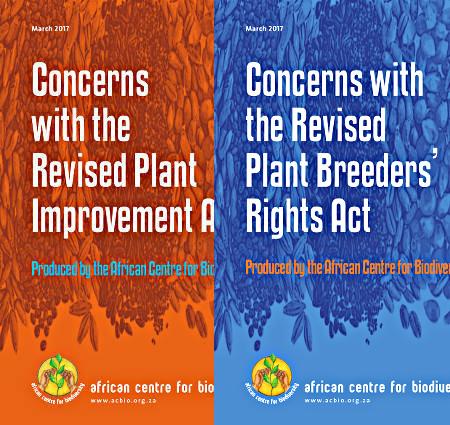Latest Resources

1 December 2020
Multiple shocks and the Ebola and COVID pandemics in West and Central Africa: extraction, profite...
Veuillez cliquer ici pour le français. We are pleased to present the first discussion paper in our “Multiple Shocks in Africa Series”. The tragic story of the Ebola pandemic in West Africa, and the Ebola epidemic in the Democratic Republic of Congo (DRC) in particular, is not just one of disease emergence. It is fundamentally […]

27 November 2020
Introducing ACB’s multiple shocks in Africa series: ecological crisis, capitalist nature & d...
Veuillez cliquer ici pour le français Por favor clique aqui para Português Por favor, haga clic aquí para el español Tafadhali bonyeza hapa kwa Kiswahili The COVID-19 pandemic and subsequent crises, as a result of lockdowns, have exposed the fractures of human societies’ relationship with nature. In a world dominated by capitalist globalisation, these crises […]

19 October 2020
We are nature! Human rights, environmental law, and the illusion of separation
Por favor, haga clic aquí para el español Passer à la version française Clique aqui para a versão portuguesa Food connects us with nature. There is no other place where our intrinsic relationship with the living world is as clear. When we eat, our body transforms nature into people. Moreover, the production of nutritious food […]

11 September 2020
DRC’s seed laws set to destroy small farmers’ seed systems
(Veuillez cliquer ici pour le français) This briefing, in collaboration with the Common Front for the Protection of the Environment and Protected Spaces of the DRC (FCPEEP), is concerned with how the Seed Bill of the Democratic Republic of Congo may impact on farmer managed seed systems (FMSS), which remain the very basis for seed, […]

18 October 2019
Prudence versus Pressure at the Seed Treaty
Will the critical need to address digital sequence information break the Seed Treaty’s effort to fix its benefit-sharing system? It probably should. (Veuillez cliquer ici pour le français) (Por favor, haga clic aquí para el español) In November 2019, the International Treaty on Plant Genetic Resources for Food and Agriculture (“Seed Treaty”) will meet in […]

8 October 2019
Crunch Time for the Seed Treaty
A review of some outstanding issues in the negotiation Will the effort to fix ITPGRFA’s broken benefit sharing system measure up to expectations? (Veuillez cliquer ici pour le français) (Por favor, haga clic aquí para el español) This paper reviews the key outstanding issues that are expected to be discussed by the ITPGRFA Governing Body, […]

17 September 2018
The SADC PVP Protocol: Blueprint for uptake of UPOV 1991 in Africa
In the recently published discussion paper, ‘The SADC PVP Protocol: Blueprint for uptake of UPOV 1991 in Africa’, Sabrina Masinjila and Mariam Mayet, provide an updated critique on the regional Plant Variety Protection (PVP) system developed under the auspices of the Southern African Development Community (SADC) – the SADC PVP protocol – adopted by the […]

27 March 2017
Briefings on the revision of South Africa’s seed laws: Entrenching an unjust and unsustaina...
As we continue to engage and mobilise around the seed policy and legislation revisions, ACB has developed 2 easy-to-read documents outlining the central concerns and possible alternative directions for seed policy to move in South Africa. Despite the public interest to support an equitable seed system, the Plant Improvement and Plant Breeders’ Rights Bills, create […]

28 July 2016
ACB Preliminary comments on Draft Regulations Implementing the Arusha Protocol for the Protection...
Draft Regulations for the implementation of the African Regional Intellectual Property Organisation’s (ARIPO’s) Arusha Protocol for the Protection of New Plant Varieties (Arusha Protocol), were considered for adoption in June 2016. The proposed regulations included provisions designed to intimidate and force seed processors, seed suppliers, government certification officers and even farmers’ organisations to police and […]

13 March 2015
Agroecology in South Africa: policy and practice
The African Centre for Biosafety has prepared a discussion document on agroecology-related policy in South Africa, and included a few examples of agroecology practices in South Africa. We trust that this document will contribute to the recently launched Food Sovereignty Campaign and the progress of agroecology practice being made on the ground in South Africa.
